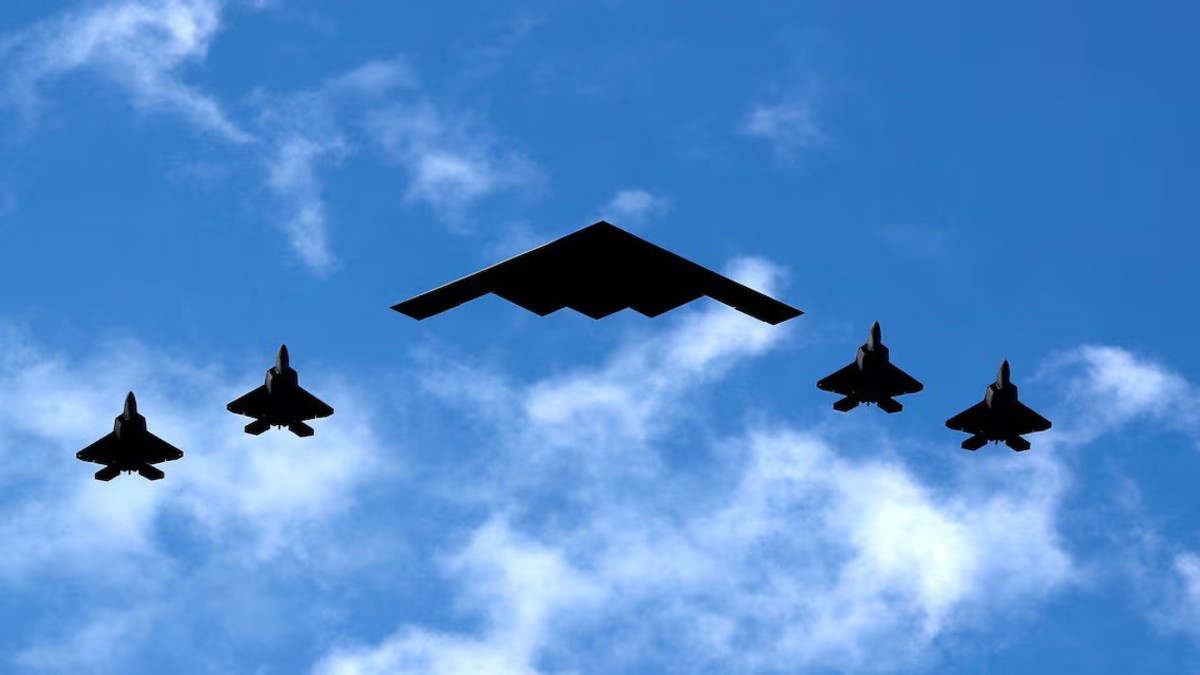US airstrikes on Iran’s nuclear facilities carry a message to China against the invasion of Taiwan, according to analysts.
China considers the self-ruled island of Taiwan a breakaway province and is committed to it reunification with the mainland — forcefully if needed. Chinese President Xi Jinping has ordered the military to be ready by 2027 for an invasion of Taiwan for the reunification.
Analysts have said that the way US struck Iranian nuclear sites and deployed a group of bombers as decoys to Guam in the Indo-Pacific showed that the United States was capable of fielding bombers in two theatres and conducting two parallel operations. As the principal challenger in the Indo-Pacific, the message could not have been lost on China.
ALSO READ: Inside Netanyahu’s campaign to destroy Iran’s bunker nuclear sites
However, analysts have stressed there is a catch that would make any US-China confrontation very different from a US-Iran confrontation.
How US strikes in Iran sent a message to China
Firstly, US strikes told China that its top strategic sites, such as the Central Military Commission command center and forward wartime headquarters, would not be beyond the reach of US bombs. Notably, the United States is developing ‘bunker buster’ bombs expected to be four times more powerful than the ones dropped on Iran last week.
Secondly, the deployment of decoy bombers to the Indo-Pacific was a “brilliant deterrence operation” and demonstrated US capabilities to operate across the world from Tehran to Taiwan, according to Miles Yu, a former State Department policy planner on China.
“This operation also served as stern warning to the CCP [Chinese Communist Party] as to what the American military is capable of, especially our ability to outsmart, outplan, out-coordinate and overpower any adversary in a long-distant global conflict, whether it’s half a world away in Tehran or over the Taiwan Strait,” Yu told Washington Times.
ALSO READ: Explained: Could China wage a war against Taiwan?
Such a message also told China that it does not ‘own’ the Indo-Pacific region, according to Captain Jim Fanell, a former Pacific Fleet intelligence chief at the US Navy.
Impact Shorts
More Shorts“Not only did it deceive the ‘open source’ intelligence community and provide operational security, but it was also a very important signal that the [People’s Republic of China] does not have any ‘ownership’ of the western Pacific, and that America is still the most dominant military force in the world,” Fanell told Washington Times.
Thirdly, the bombing of Iranian nuclear sites served as the demonstration of Trump’s will to intervene abroad if required and come to the aid of allies and partners.
“After the Iran strikes, I suspect that Chinese leaders will now be more nervous about testing President Trump’s resolve” on Taiwan, Zack Cooper, a senior fellow at the American Enterprise Institute, told The New York Times.
“Caution is warranted, both because Trump appears more willing to use force than many expected, but also because his actions seem less predictable,” Cooper further said.
But there’s a catch
Despite the gravity of the message that US strikes inside Iran sent to China, there is one catch: Unlike Iran, China has nuclear weapons.
As China has nuclear weapons and has naval and air defence capabilities much better than Iran, any US-China confrontation is bound to be very different from US-Iran confrontation.
Moreover, Israel holds a special place for the United States that Taiwan does not hold. Trump, or any other US president for that matter, may not feel the same security commitment to Taiwan as Israel.
ALSO READ: China’s nuclear arsenal growing fastest, to touch 1,500 warheads by 2035, finds SIPRI
For decades, China has prepared for the invasion of Taiwan and US intervention.
Chinese leaders are confident that their military is much more formidable than the weakened Iranian forces that Israeli and US forces overcame, said Stacie Pettyjohn, a Senior Fellow at the Center for a New American Security, according to NYT.
“The US couldn’t just swoop in there with an exquisite capability and launch a limited number of strikes and win. That is something that would be very clear to Beijing,” Pettyjohn further said.
In the case of a Chinese invasion of Taiwan that sees US military involvement on Taiwan’s side, the destruction will be at a scale not seen since World War 2, according to a wargame by Center for Strategic and International Studies (CSIS).
The CSIS exercise concluded that US-Taiwanese forces will thwart the Chinese occupation of Taiwan, but the costs will be so huge that US military will be degraded for many years.
“This defense comes at a high cost. The United States and Japan lose dozens of ships, hundreds of aircraft, and thousands of servicemembers. Such losses would damage the US global position for many years. While Taiwan’s military is unbroken, it is severely degraded and left to defend a damaged economy on an island without electricity and basic services. China also suffers heavily. Its navy is in shambles, the core of its amphibious forces is broken, and tens of thousands of soldiers are prisoners of war,” the wargame’s report noted.


)

)
)
)
)
)
)
)
)



